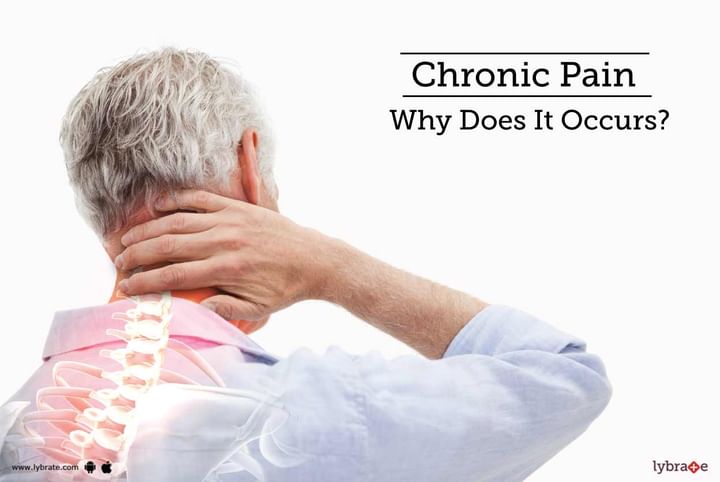Chronic Pain - Why Does It Occurs?
Persistence of pain even after full healing of an affected area after injury or ailment is known as chronic pain. Chronic pain can also occur due to an undiagnosed underlying condition within the body. Any form of pain which lasts for more than 6 months can be categorized as chronic pain. Chronic pain might be continuous or episodic, excruciating or mild, totally incapacitating or merely inconvenient.
Symptoms of Chronic Pain include:
1. Light to severe pain that keeps occurring from time to time and cannot be relieved easily.
2. The occurrence of pain that can be described as burning, shooting, aching or even, electrical.
3. Constant feelings of discomfort. This includes stiffness, tightness or soreness in the affected area.
Chronic pain usually does not occur alone and is often accompanied by other problems such as:
1. Lack of sleep
2. Fatigue
3. Weakened Immune System
4. Disability
5. Mood Swings that include depression, fear, hopelessness, anxiety, stress, irritability, etc.
Reasons behind it
There are a number of different factors that can cause chronic pain. Some of them are:
- Aging: Common conditions associated with normal aging can have an effect on joints and bones, giving rise to chronic pain.
- Incorrect treatment and improper healing: Bad diagnosis or incorrect medications or procedures may cause improper healing of injuries as well as damage to nerves leading to chronic pain.
- Underlying disorders or diseases: Diseases are also capable of causing chronic pain. Conditions like osteoarthritis, rheumatoid arthritis and fibromyalgia are some well-known diseases that cause chronic pain. However, persistent and chronic pain might occur due to sicknesses like multiple sclerosis, cancer, AIDS, stomach ulcers as well as gallbladder disease.
In most of the cases, the reasons behind chronic pain can be rather complex. Sometimes, even though the chronic pain begins with an illness or an injury, the ongoing pain is capable of developing into a psychological aspect even after the physical issues have been healed, thus making treatment tricky.
Treatment
Chronic pain is usually managed using a combination of physical therapy, medications and exercises, which helps in reducing the pain. Examples of pain-relieving medications include ibuprofen and aspirin. Day-to-day activities can be performed only if this pain is adequately controlled. Additional techniques include:
- Radiofrequency Ablation (RFA): The target of this technique to address the nerves that are responsible for sending pain signals to the brain. This is achieved by placing the heated tip of a needle in a region which is extremely close to the nerve. The heat renders the nerve incapable of sending the pain signal.
- Pain Shots: This is used to deliver medications to the exact site of the pain. Nerve blockers are also used to block signals from reaching the brain.
- Alternative approach: These include acupuncture, massages and yoga along with other treatments from alternative medicine.



+1.svg)
